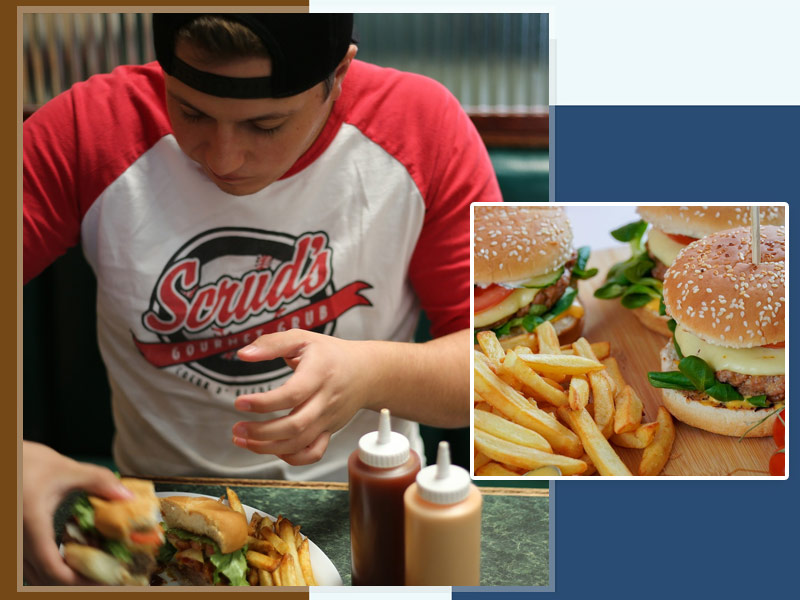
It was somewhere in the 1990s when fast food made an appearance in India and changed its food landscape forever. It essentially started with fast food giants- Domino’s and Pizza Hut opening shops in Delhi and Bengaluru, not to forget McDonald’s, which opened the same year in Delhi. Almost three decades since then, fast food remains as popular as ever. Visible proofs are the range of shops spread across India. This could be because these are designed in a way to cause pleasure and be addictive. But at the same time, they rob us of our health.
Table of Content:-
All of us know that fast foods are extremely bad for health. They make us fat, puts us at risk of getting diabetes and cardiovascular diseases, are bad for dental health, and can even cause depression. Yet, when confronted with that burger, with fries and cola on the side, we give in to our cravings. And a few minutes later, we get into a state of bliss, while that fast food in your belly works slyly in our system, messing up with one part of it after another. To avoid this, what might help is a clear picture of what actually happens in your body when you dig into that slice of pizza. But before that, you need to know what fast food is.
What Is Fast Food?

(Photo Credit: Freepik)
As the name suggests, fast food is the one that is cooked and served fast. People often opt for it when they intend to eat fast. Also, it’s also digested quickly. It is high in calories and low in nutrition. It also contains large amounts of salt, sugar, refined carbs saturated or trans fats, and preservatives, which are not good for health.
What Happens To Your Body After You Eat Fast Food?
If you are eager to know what happens when you eat fast foods, here are some:
Triggers Pleasure Point
Firstly, as soon as you eat fast food, the reward system of your brain lights. It is how they are designed, to induce a sense of pleasure. That is the reason why you feel so good after you take that bite of pizza. They also have the perfect mix of salt, sugar, and fat that makes them addictive. Also, fast foods get broken down easily in the mouth, are easy to chew, and trigger those pleasure points, which makes them feel good on the palate.
Increase in blood glucose
Once in your system, fast foods get digested quickly in about a few minutes. This leads to a sudden spike in the blood glucose level, making your pancreas pump more insulin. This is the reason why such foods increase your chances of becoming immune resistant and getting diabetes.
Also read: Foods To Have And Avoid For A Good Night’s Sleep States Expert
Fat accumulation
Since fast foods are calories-rich, a large amount of glucose gets into the bloodstream. However, most people don’t utilise that much energy. Thus, those calories get stored as fat making you obese. Also, such foods contain a large amount of sugar, which isn’t that great in making you feel satiated. Chances are that in your next meal you will end up eating more than normal.
Sudden Energy Crash
Just as quickly these factory-processed foods make your blood sugar level rise, it dips in the same way, leading to an energy crash. That’s the reason why you get hungry quickly after you eat fast food. Also, this energy crash leads to mood swings and makes you feel cranky and irritated.

(Photo Credit: Freepik)
Also read: Banana Is Fattening, Gluten Is Bad: Myths About Foods And Weight Loss Quashed
Health Problems
Also, although fast foods get digested quickly, yet there are some aspects of it, such as fats, which sit in your belly for a long. Since these aren’t easily digested, they make you feel bloated and cause indigestion. Also, these foods are high in salt, which leads to fluid retention.
Conclusion
So as you saw that fast foods wreak havoc in your system, from your brain to your belly. Although doing away with them completely needs sheer determination and willpower, you should try to minimise intake as much as possible. Whenever the going gets tough, just remember with every bite of that burger, you are slowly eating up your health.
Read more articles on Healthy Diet
Photo Credit: Unsplash, Pixabay
Also watch this video
How we keep this article up to date:
We work with experts and keep a close eye on the latest in health and wellness. Whenever there is a new research or helpful information, we update our articles with accurate and useful advice.
Current Version